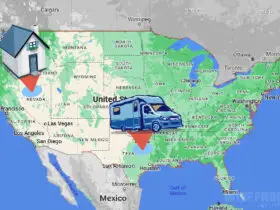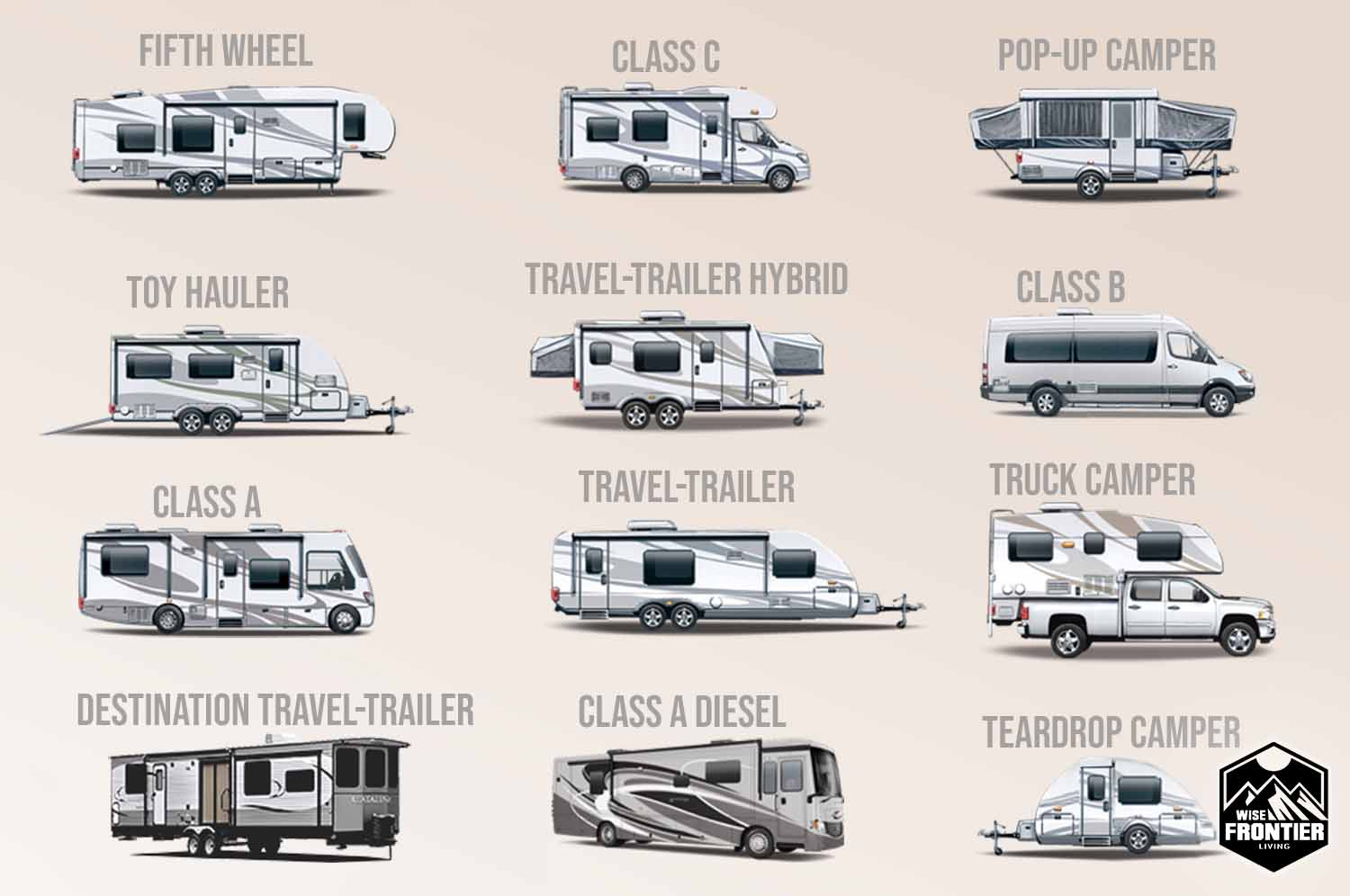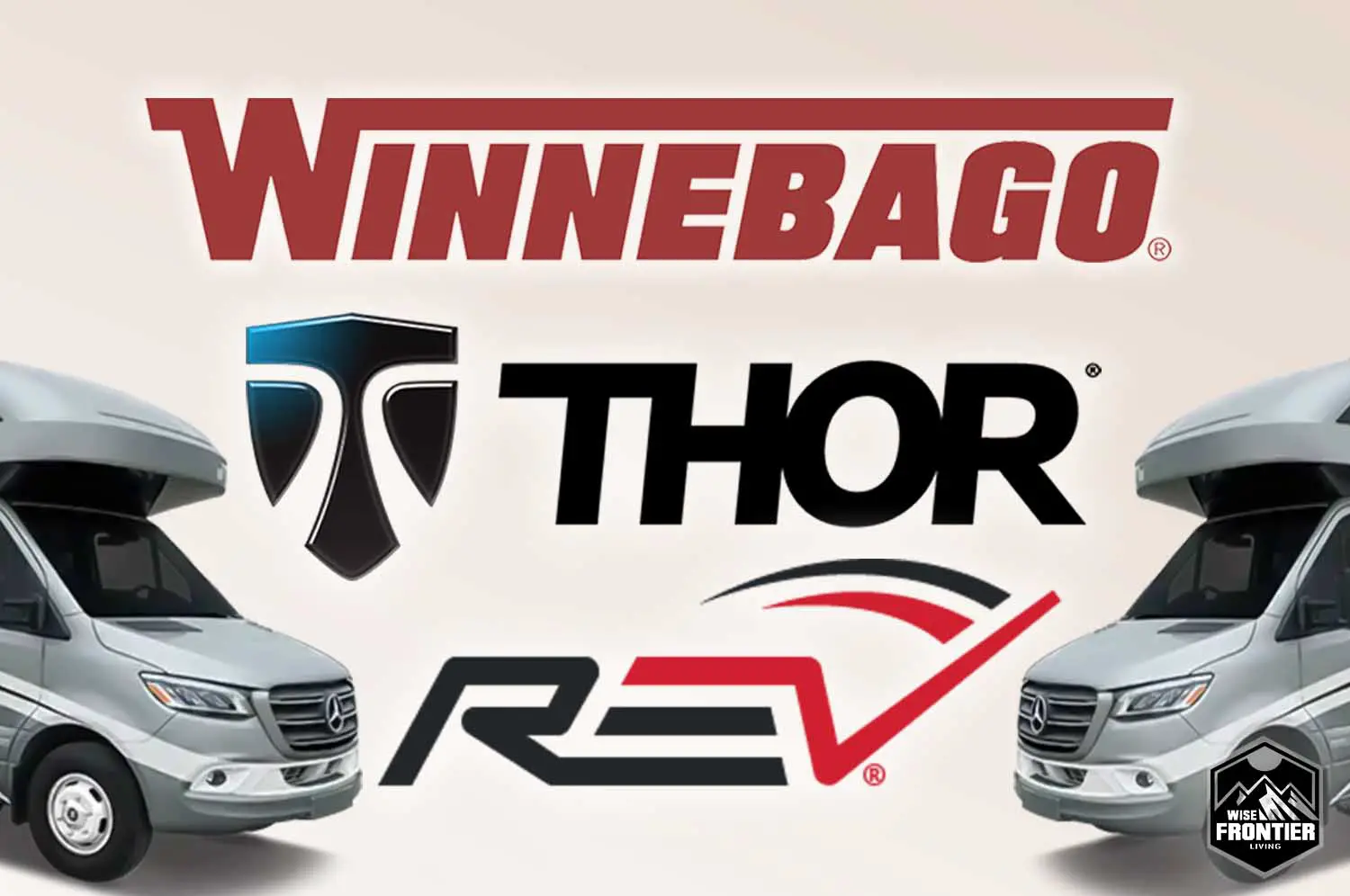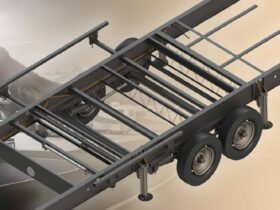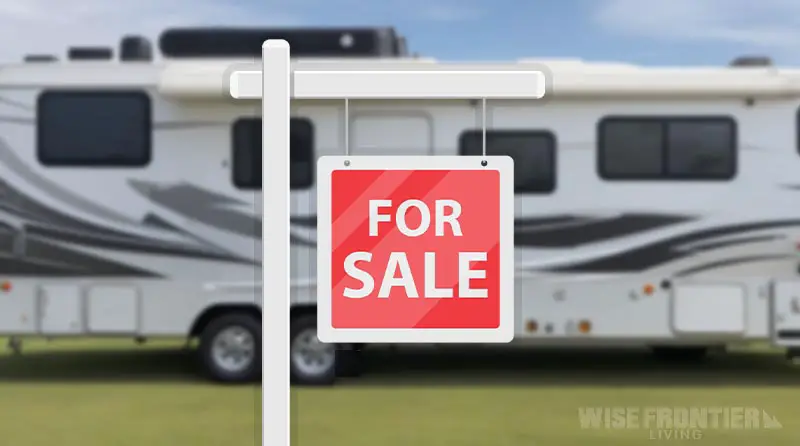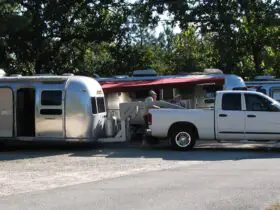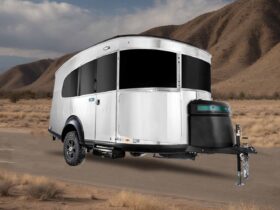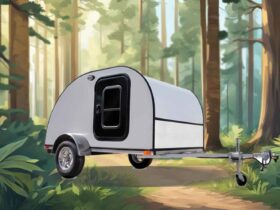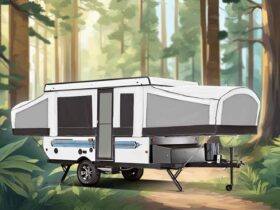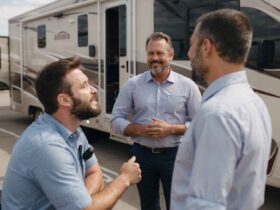So, you’ve decided to take the plunge and buy an RV. You’ve found the perfect one, and it’s love at first sight. There’s just one catch: the seller still has a loan on it. Don’t worry, buying an RV with an existing loan is like navigating a maze.
It’s confusing at first, but with the right steps, you’ll find your way out—or in this case, drive away in your new home-on-wheels.
Key Takeaway:
Buying an RV from a private seller with an existing loan is entirely doable. The process involves a few extra steps like verifying the loan, meeting at the lender’s office, and ensuring a proper title transfer. But with due diligence and patience, you’ll hit the open road quickly.
Preliminary Steps: Before You Even Think of Handing Over Cash
Research, Research, Research
First things first, you need to know what you’re getting into. Use resources like the NADA Guides or jdpower to find out the fair market value of the RV. This isn’t the time to rely on your gut feeling or the seller’s charming smile. Numbers don’t lie, but sellers—well, let’s just say they might embellish the truth a bit.
| Resource | What It Offers |
|---|---|
| NADA Guides | Fair market value, depreciation rates |
| RV forums | Real-world reviews, common issues |
| Online marketplaces | Price comparisons, feature lists |
Inspect the RV Like Sherlock Holmes
Once you have an idea of what the RV should cost, it’s time to inspect it. And we’re not talking about a casual walk-around. You need to dig deep. Check for water damage, tire wear, engine condition—the whole nine yards. If you’re not an RV aficionado, consider hiring a professional to do the inspection.
When I was researching RVs, this is the book I got from Amazon: Buying a Used Motorhome – How to get the most for your money and not get burned
Check the Paperwork: No, More Paperwork Doesn’t Mean More Campfire Fuel
Ask for all the relevant paperwork from the seller. This includes the loan details, maintenance records, and any other documents that prove the RV’s condition and history. You’ll especially want to know the payoff amount, which is the magic number that will set the RV free from its loan shackles.
Get my RV inspection checklist here.
| Document | Why It’s Important |
|---|---|
| Loan details | To verify the payoff amount and lender |
| Maintenance records | To assess the RV’s condition |
| Vehicle history report | To check for past accidents or issues |
Buying an RV From a Private Seller: List of Questions to Ask
When buying an RV from a private seller, asking the right questions is crucial to ensure you’re making a wise investment. Here’s a list of questions you might consider asking.
The questions below will arm you with the ammo you need so the seller will think twice about pulling a fast one. There is no need to hit the seller with rapid-fire questions, just casually try to incorporate some of the best questions below into the conversation:
General Questions
- Why are you selling the RV?
- How long have you owned it?
- Can you provide a complete history of maintenance and repairs?
- Are you the original owner?
- What is the current mileage?
- Is the RV still under warranty?
- Do you have all the necessary paperwork, including the title and registration?
Condition and Maintenance
- When was the last time the RV was serviced?
- Are there any known mechanical issues?
- Has the RV ever been in an accident or had body repairs?
- How are the tires? When were they last replaced?
- What is the condition of the roof and seals?
- Have any appliances been replaced or upgraded?
- Are there any leaks, water damage, or mold?
Features and Amenities
- What features does the RV have (e.g., solar panels, backup camera, etc.)?
- Are all appliances and systems in working order (e.g., AC, heating, plumbing)?
- Does it come with any additional accessories or add-ons?
- Is the RV winterized or suitable for four-season use?
Financial and Legal
- What is your asking price?
- Are you open to negotiation?
- Is financing an option through you, or will I need to secure my own loan?
- Do you have a lien on the RV, and if so, how will it be handled?
- Will you accept a deposit to hold the RV while I arrange for an inspection?
Inspection and Test Drive
- Can I take the RV for a test drive?
- Would you mind if I have the RV inspected by a professional?
- Can I see the RV both connected and disconnected from utilities?
- Can I spend some time in the RV to check for comfort, noise, and other issues?
Finalizing the Deal
- What is your timeline for selling?
- What forms of payment do you accept?
- Can you provide a bill of sale and other necessary documents for the transaction?
These questions can help you comprehensively understand the RV’s condition, history, and value, enabling you to make an informed decision.
Financial Arrangements: Where Rubber Meets the Road, Financially Speaking
Secure Your Financing: Because Money Doesn’t Grow on Trees, Unfortunately
You’ll likely need to secure your own financing. Talk to your bank or another financial institution about getting a loan for the RV. Make sure to inform them that the RV you’re eyeing still has an existing loan. They’ll guide you through the process, and hopefully, offer you a cup of coffee while you fill out endless forms.
| Financing Option | Pros | Cons |
|---|---|---|
| Bank Loan | Lower interest rates, established relationship | Strict credit requirements |
| Credit Union | Member benefits, potentially lower rates | Membership requirements |
| Online Lenders | Quick approval, less paperwork | Higher interest rates |
Agree on Payment: The Moment of Truth
Once you’ve secured your financing—or decided to pay in cash if you’re one of those mythical creatures who can do that—it’s time to agree on the payment terms with the seller. This is the moment where you both look each other in the eye and say, “Let’s do this.” Or, you know, just nod and proceed to the next step.
| Payment Method | Pros | Cons |
|---|---|---|
| Cashier’s Check | Secure, widely accepted | Must go to the bank to get it |
| Wire Transfer | Quick, no need for physical exchange | Fees may apply |
| Personal Check | Convenient | Risk of bouncing, seller may not accept |
Escrow: Because Trust is Good, but Verification is Better
Given the complexity of the transaction, you might want to consider using an escrow service. This third-party service will hold onto the funds until all conditions are met, adding a layer of security for both parties. Think of it as a financial babysitter for your big purchase.
| Escrow Service Features | Why It’s Useful |
|---|---|
| Secure fund holding | Adds a layer of security |
| Conditional release of funds | Ensures all terms are met before money changes hands |
| Documentation | Provides a paper trail for the transaction |
Completing the Sale: The Finish Line is in Sight, But Don’t Spike the Ball Yet
Meet at the Lender: Where All the Magic Happens
If possible, arrange to meet the seller at the financial institution that holds the loan. This is the adult version of a field trip, and it’s just as exciting. By meeting at the lender’s office, you can pay off the loan directly and ensure that the title is transferred to you.
| Location | Pros | Cons |
|---|---|---|
| Lender’s Office | Secure, immediate title transfer | Business hours may be limited |
| Public Place | Convenient | Must still coordinate with lender for title transfer |
| Seller’s Home | Can inspect RV again | Less secure, title transfer may be delayed |
Payoff and Title Transfer: The Moment You’ve Been Waiting For
Use a cashier’s check or wire transfer to pay off the existing loan. The lender will then release the title, which can be transferred to your name. This is the moment where you can finally breathe a sigh of relief—or let out a victory screech, your choice.
| Step | What Happens |
|---|---|
| Payoff Loan | Use cashier’s check or wire transfer |
| Title Release | Lender releases the title |
| Title Transfer | Title is transferred to your name |
Bill of Sale: The Icing on the Cake
Create a bill of sale that outlines the terms of the transaction, including the sale price and any other conditions. Both parties should sign this document. It’s like a love letter to your RV, but with legal implications.
| Element in Bill of Sale | Importance |
|---|---|
| Sale Price | Documents the agreed-upon price |
| Conditions | Any additional terms or conditions |
| Signatures | Legally binds the transaction |
Additional Paperwork: Because Bureaucracy Loves Company
Complete any additional paperwork required by your state for the transfer of vehicle ownership. This may include emissions tests, safety inspections, and more. It’s the paperwork party, and you’re the guest of honor!
| State Requirement | Why It’s Needed |
|---|---|
| Emissions Test | Some states require it for registration |
| Safety Inspection | May be needed for insurance and registration |
| Additional Fees | Taxes, registration fees, etc. |
Registration and Insurance: The Final Frontier
Once the title is in your name, you can register the RV and get insurance. Congratulations, you’re now the proud owner of an RV with no strings attached—well, except for the strings that tie down your awning.
| Final Step | What to Do |
|---|---|
| Registration | Register the RV in your name |
| Insurance | Purchase appropriate insurance coverage |
And there you have it! You’ve successfully navigated the labyrinthine process of buying an RV from a private seller with a loan. Now, go forth and explore the great outdoors—or at least the great RV park down the road.
Conclusion: Final Wrap-Up Before You Hit the Road
Congratulations! If you’ve followed this guide, you’re now the proud owner of an RV, and the only loan you have to worry about is your own. You’ve navigated the maze of financial arrangements, paperwork, and title transfers like a pro—or at least like someone who had a really good guide.
Remember, due diligence is the key to a successful RV purchase from a private seller with a loan. Verify the loan, meet at the lender’s office for the payoff and title transfer, and ensure all the paperwork is in order. It’s a bit more complicated than buying an RV that’s already paid off, but life’s an adventure, right? And now you have the perfect vehicle to enjoy it in.
So, what are you waiting for? The open road calls, and you’ve got the best seat in the house—or should I say, the best house on wheels.
Thank you for reading, and happy RVing!


